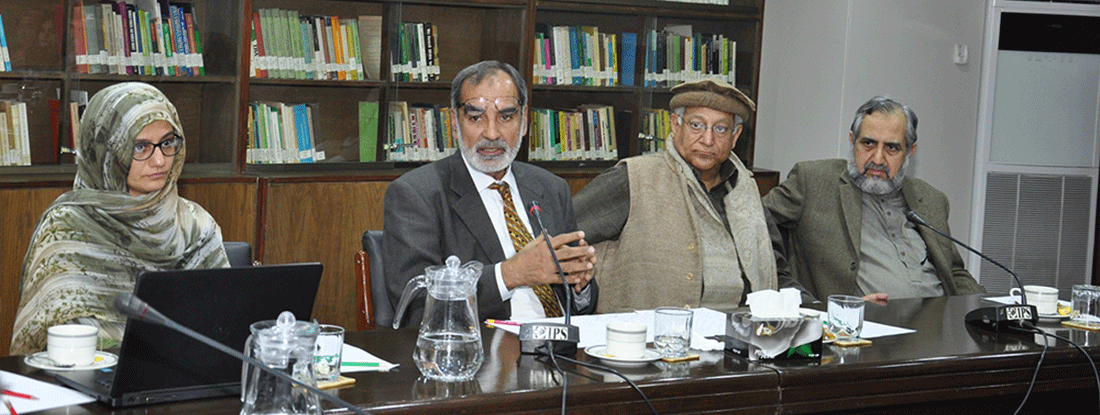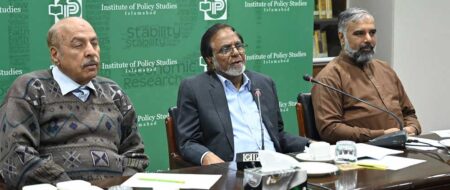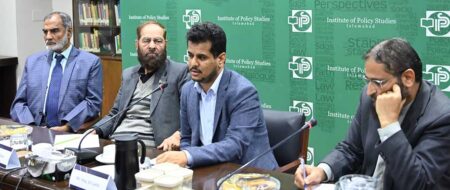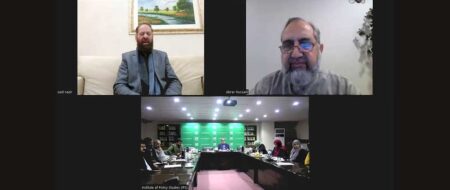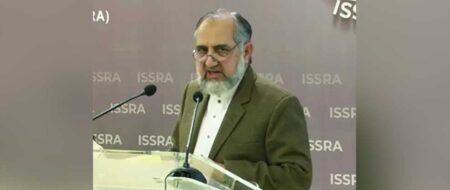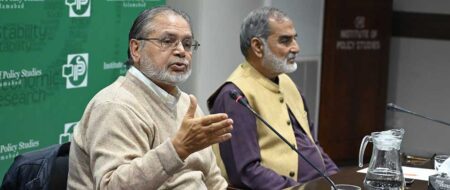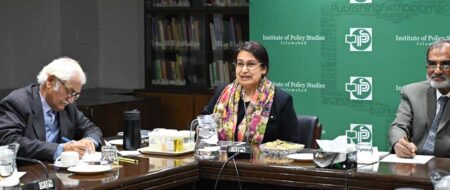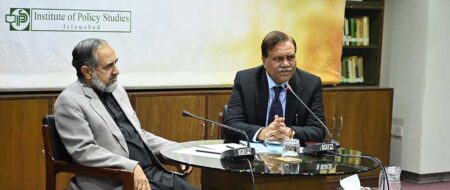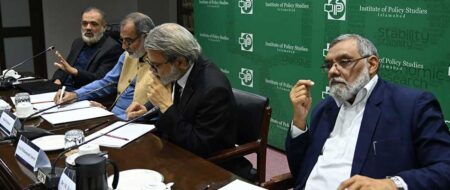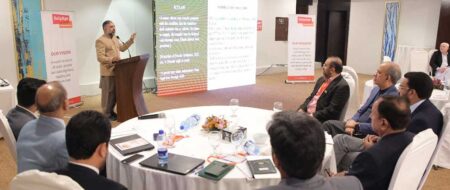Sixth meeting of IPS Working Group on Kashmir
The government
of Pakistan has taken some good steps for raising awareness of the Kashmir
issue internationally, but the lack of a comprehensive policy framework and a
concrete action plan is hindering further progress considerably.
This
was the gist of the sixth meeting of the working group on Kashmir, which was
formed by Institute of Policy Studies (IPS), Islamabad to discuss the latest
developments pertaining to Indian Occupied Kashmir (IoK) post August 5, 2019.
The session, which was held on February 28, 2020, was chaired by Executive
President IPS Khalid Rahman whereas the participants of the meeting included
Ambassador (r) Syed Ishtiaq Hussain Andrabi, Farzana Yaqoob, former AJ&K
minister, Ambassador (r) Syed Abrar Hussain, senior IPS research fellow, Amanullah
Khan, former president, Rawalpindi Chamber of Commerce & Industry, Advocate
Nasir Qadri, international law expert, and Dr Ayesha.
The
panelists were unanimous that while the recent discussions on Kashmir with the
UN Secretary General António Guterres during his trip to Pakistan and
international media coverage of the issue do give an impression that Islamabad
has gained considerable diplomatic ground in highlighting the dispute globally,
but there is still a lot that needs be done in this regard. The absence of a
comprehensive policy and a concrete action plan from the government conveys the
sense that either it is not clear about any strategy or lacks the capacity to
forge a solid response altogether.
It
was pointed out that the actual situation in Indian Occupied Kashmir was much
worse than what was being projected globally, whereas India is also preparing
further ground to legalize its illegal act by altering the status quo. One can
also not ignore the contemporary global scenario where all the nations and in
fact the whole international system operates according to its own interests.
Pakistan, in the given situation, must also realize the ground realities and
try to devise a strategy to carve its way through the muddle.
The
speakers were critical of Pakistan’s response so far stating that though a lot
of activities were taking place in the country regarding Kashmir, they were not
serving much purpose except creating a transitory memory at best. They
emphasized that the onus of making use of the narrative formed as a result of
those activities rests with the state institutions, but the paralysis of both
policy and action at their end is only making the situation more perplexed. In
case the concurrent inaction is being sustained as part of a policy, then it
must be reflected as part of a plan. There are purposefully created Kashmir
cells and committees within the government ministries, yet there is not a
single layout consolidating a way forward strategy for Pakistan in the given
situation, they added.
The
speakers urged the government to build on the ground created by multifarious
activities on Kashmir as well as the hype generated over the matter in
international media. They viewed that the Kashmiri diaspora has played a very
proactive role so far, but their motivation will waver if they don’t see any
concrete response coming out of Pakistan. It is high time that the government
starts to practice effective public diplomacy, and then instead of relying
solely on sound bites, begins taking solid measures to exhibit a bit more
determination for the cause.


